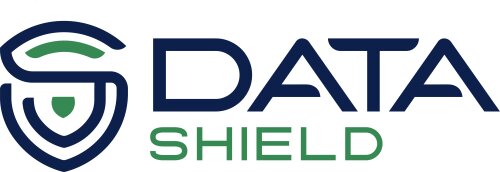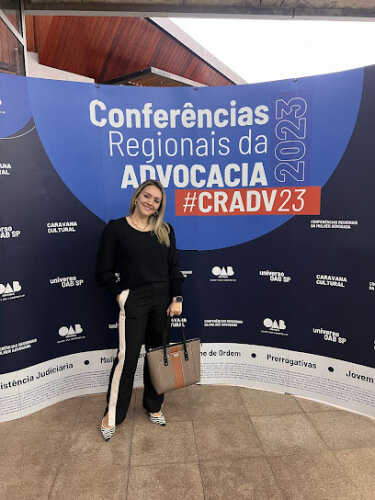Best Ethics and Professional Responsibility Lawyers in Brazil
Share your needs with us, get contacted by law firms.
Free. Takes 2 min.
Or refine your search by selecting a city:
List of the best lawyers in Brazil

About Ethics and Professional Responsibility Law in Brazil
Ethics and professional responsibility within the Brazilian legal framework are primarily governed by a series of regulations, statutes, and codes established to ensure that professionals across various sectors adhere to high standards of conduct and ethics. In Brazil, the practice of law, in particular, is regulated by the Ordem dos Advogados do Brasil (OAB), which sets forth ethical guidelines meant to uphold the integrity and professionalism of legal practitioners. These guidelines are not only applicable to lawyers but also hold relevance for other professional sectors where ethical conduct is paramount, such as in healthcare, finance, and public services.
Why You May Need a Lawyer
It is common for individuals or entities to seek legal advice in the field of ethics and professional responsibility in several situations. These include, but are not limited to, dealing with allegations of professional misconduct, understanding compliance requirements in a specific industry, navigating conflicts of interest, needing guidance on whistleblowing protocols, dealing with disciplinary actions, or needing representation in disputes related to breaches of ethical standards. A lawyer specializing in this field can provide valuable guidance on these matters and help mitigate any potential legal repercussions.
Local Laws Overview
The key local laws in Brazil concerning ethics and professional responsibility include the OAB Code of Ethics, the Brazilian Civil Code, and sector-specific regulations such as those found within the medical or financial industries. These regulations ensure transparency, fairness, and accountability. The OAB Code of Ethics, for instance, mandates legal practitioners to maintain client confidentiality, avoid conflicts of interest, and promote justice. Additionally, state-specific regulations may also apply, and it is important for professionals to be familiar with such standards to avoid legal complications.
Frequently Asked Questions
1. What is the role of the OAB in ethics and professional responsibility?
The OAB is responsible for regulating the legal profession in Brazil, establishing ethical standards, and ensuring that lawyers comply with them. This includes maintaining a registry, conducting disciplinary proceedings, and offering guidance to legal practitioners.
2. What are common ethical issues faced by professionals in Brazil?
Common issues include conflicts of interest, breaches of client confidentiality, misrepresentation, negligence, and fraud. Professionals may also encounter challenges in maintaining unbiased judgments and avoiding undue influence.
3. How does Brazilian law address conflicts of interest?
Conflicts of interest are addressed by requiring disclosure and, in certain cases, recusal or obtaining consent from all parties involved. Professionals are expected to avoid situations that could impair their ability to serve objectively.
4. What actions can be taken against professionals who violate ethical standards?
Actions can include warnings, fines, suspension, or disbarment in the case of lawyers. The severity of the penalty typically corresponds to the severity of the violation.
5. Can I change my legal representation if I believe my lawyer is not adhering to ethical standards?
Yes, clients have the right to change their legal representation if they believe their lawyer is not acting ethically. It is advised to address the concerns directly with the lawyer first or file a formal complaint with the OAB.
6. What should I do if I am accused of professional misconduct?
Seek legal counsel immediately to understand the nature of the allegations, gather necessary documents and evidence, and prepare a defense. A lawyer can provide critical guidance throughout the process.
7. Are there specific ethics codes for different professions in Brazil?
Yes, different professions in Brazil may have their specific codes of ethics. For instance, the Conselho Federal de Medicina has a specific code for medical professionals, and similar codes exist for other professional sectors.
8. How can companies ensure they are in compliance with ethics laws?
Companies can implement compliance programs, conduct regular training, establish clear policies and procedures, engage in audits, and seek legal advice to ensure they are functioning legally and ethically.
9. What are the recommended steps if someone wants to report unethical behavior?
Start by reviewing any internal policies for reporting unethical behavior. If such policies do not exist or offer inadequate resolution, consider reporting it to relevant professional bodies or authorities. Legal counsel may be sought to navigate potential legal implications.
10. How does the legal system in Brazil handle whistleblowers?
Brazilian laws provide mechanisms for the protection of whistleblowers. It encourages the reporting of unethical practices while providing certain levels of protection and anonymity, where applicable.
Additional Resources
Individuals seeking further help may contact the Ordem dos Advogados do Brasil (OAB) for legal inquiries. Additionally, the Conselho Federal de Medicina and other professional regulatory bodies often provide resources and guidelines pertinent to their respective fields. Research institutions and legal aid services may also offer insights and support for those navigating ethics and professional responsibility issues.
Next Steps
If you require legal assistance in matters of ethics and professional responsibility, consider engaging a lawyer who specializes in this area. Start by identifying specific concerns, then seek consultations to find an attorney best aligned with your needs. Before proceeding, verify the lawyer's credentials and experience with the OAB. Online directories and referrals from trusted contacts can be a useful starting point in your search.
Lawzana helps you find the best lawyers and law firms in Brazil through a curated and pre-screened list of qualified legal professionals. Our platform offers rankings and detailed profiles of attorneys and law firms, allowing you to compare based on practice areas, including Ethics and Professional Responsibility, experience, and client feedback.
Each profile includes a description of the firm's areas of practice, client reviews, team members and partners, year of establishment, spoken languages, office locations, contact information, social media presence, and any published articles or resources. Most firms on our platform speak English and are experienced in both local and international legal matters.
Get a quote from top-rated law firms in Brazil — quickly, securely, and without unnecessary hassle.
Disclaimer:
The information provided on this page is for general informational purposes only and does not constitute legal advice. While we strive to ensure the accuracy and relevance of the content, legal information may change over time, and interpretations of the law can vary. You should always consult with a qualified legal professional for advice specific to your situation.
We disclaim all liability for actions taken or not taken based on the content of this page. If you believe any information is incorrect or outdated, please contact us, and we will review and update it where appropriate.
Browse ethics and professional responsibility law firms by city in Brazil
Refine your search by selecting a city.













